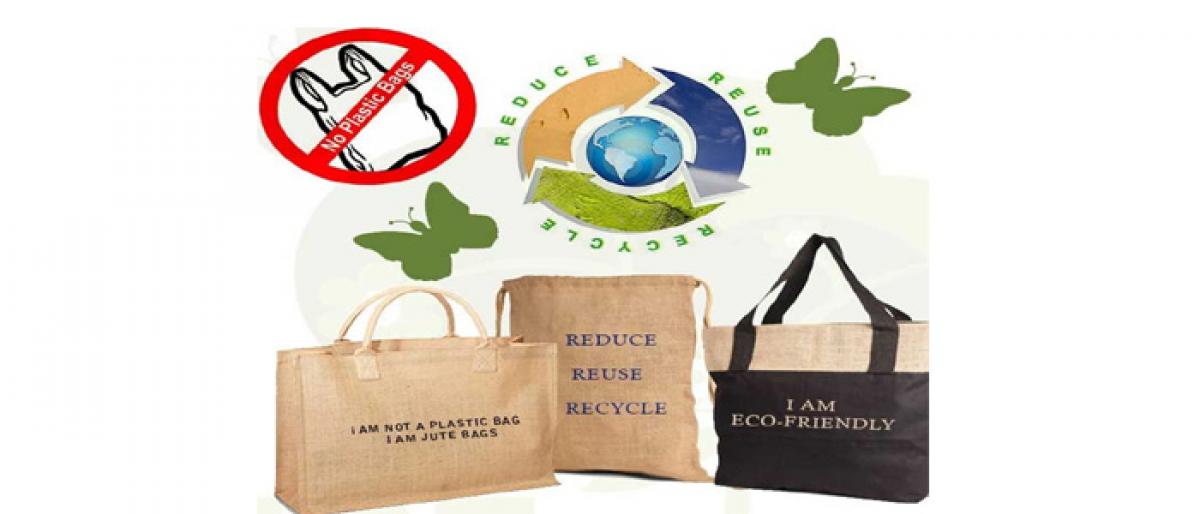Live
- RTC bus hit the auto
- MLA Kuchukula Rajesh Reddy participated in the Birappa festival
- DMHO starts awareness campaign on Malaria
- World Intellectual Property Day 2024: Date, History, Significance, and Everything You Need to Know
- Shiv Sena-UBT manifesto assures dignity to all states; ‘no’ to polluting nuclear, refinery mega projects
- IPL 2024: Delhi Capitals sign Gulbadin Naib to replace injured Mitchell Marsh
- Delhi court grants 30-day extension to police to conclude probe in Parliament security breach case
- Cash, liquor, drugs valued at Rs 321 crore confiscated in Punjab
- Gunfight breaks out in J&K's Sopore
- BJP aims to improve tally, Congress plays Vokkaliga card as 14 seats in K'taka go to polls on Friday
Just In

It may be true that the world is drowning in plastics. However, in the last few weeks, we are submerged more in statistics than in plastics.
It may be true that the world is drowning in plastics. However, in the last few weeks, we are submerged more in statistics than in plastics.
For example: One million plastic drinking water bottles are purchased every minute, five trillion single-use plastic bags are used worldwide every year, half of all plastic produced is designed to be used only once and then thrown away.
The world has produced till date about 8.3 billion tonnes of plastics, that is more than one tonne per person. Out of the global plastic production of 380 million tonnes in 2016, equivalent of the total weight of the human population, only about 10 percent is recycled and another 12 per cent incinerated.
Nearer home, in India, more than five to seven million tonnes of plastic waste is generated every year of which 40 per cent remains uncollected and lies scattered. Eventually it enters rivers and oceans and the food chain. The balance is mostly sent to landfills or burned.
A UN report makes the shocking prediction that, by 2050, there will be more plastic in the oceans than fish.
What is our response?
Get armed with gloves, bags and put on military shoes. Get into half-sleeved shirts and then with battalions of men, women, children start picking littered plastics from streets, beaches, parks, forests and river banks. Indeed, when such armies are led by national and international leaders in the "great global plastic pick-up," the dedication is obvious.
Many critics, however, say that it is "end-of-the-pipe" solution that overshadows the root problem and does not allow us to see the forest for the trees. It is like cleaning the rivers without preventing the untreated waste streams flowing into them.
Should not we, therefore, prevent the unnecessary production and consumption of plastics that results in waste generation? Is it not futile to keep collecting waste with armies of citizens, that too without any clue of how to dispose the collected plastic?
When the world solved the life-threatening challenge of ozone layer depletion, caused by man-made ozone-depleting chemicals like CFCs, we did not keep on capturing CFCs. We stopped their production and consumption. We developed effective alternatives to CFCs over the years.
CFCs were recycled till alternatives were found. The producing industries were given strict targets to get alternatives and close down production of ozone-depleting chemicals. Developed countries helped developing countries like India and China.
World Environment Day, a flagship campaign of United Nations Environment Programme (UNEP), has a theme and a host country each year. Indeed, it creates global awareness among the topmost policymakers as well all stakeholders on environmental issues. This year's was a watershed because UNEP chief Erik Solheim drew attention to the menace of plastic waste. He criss-crossed the host country, India, and even joined the army of citizens cleaning the beaches.
A blog on the UNEP website, interestingly, states the critics' point of view that cleaning a beach is not turning the tide, because the tide will just come in again, depositing more plastic cups, bottles, straws, bags and discarded fishing equipment.
Indeed, clean-up campaigns, like that on Versova beach in Mumbai, do make a difference. Every piece of trash that is collected and taken away means one less life-threatening item for birds, turtles or whales to swallow. Clean-ups also inspire and educate masses to take action for responsible consumption.
But what is needed is to address the challenge at its source. CEOs of the manufacturers of plastics, products and its designers must join the "everlasting clean-up" by reducing unnecessary plastic at source, design less harmful plastics and develop the best recycling processes. Extended liability for the protection of the environment lies with the producers as well as consumers.
(Rajendra Shende, Chairman TERRE Policy Centre, is a former UNEP Director and IIT alumnus)

© 2024 Hyderabad Media House Limited/The Hans India. All rights reserved. Powered by hocalwire.com







